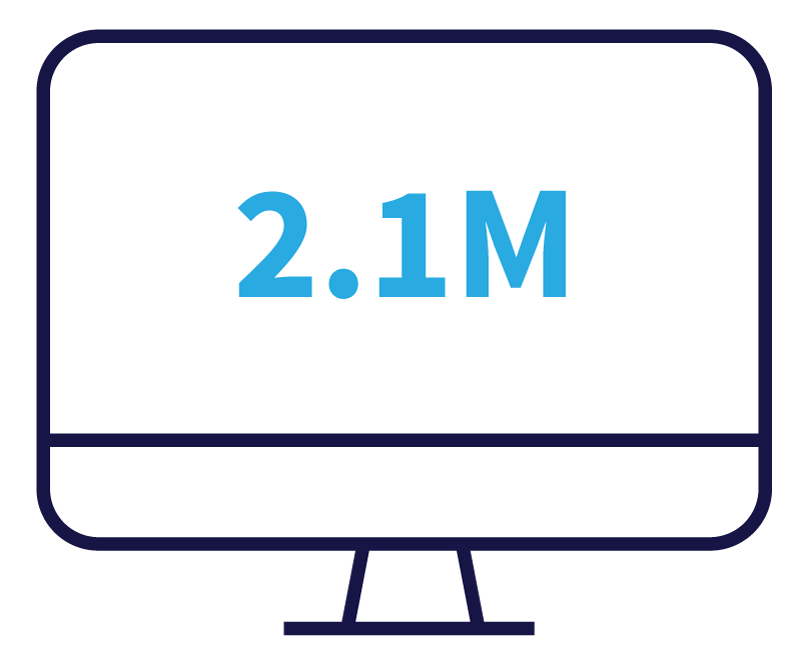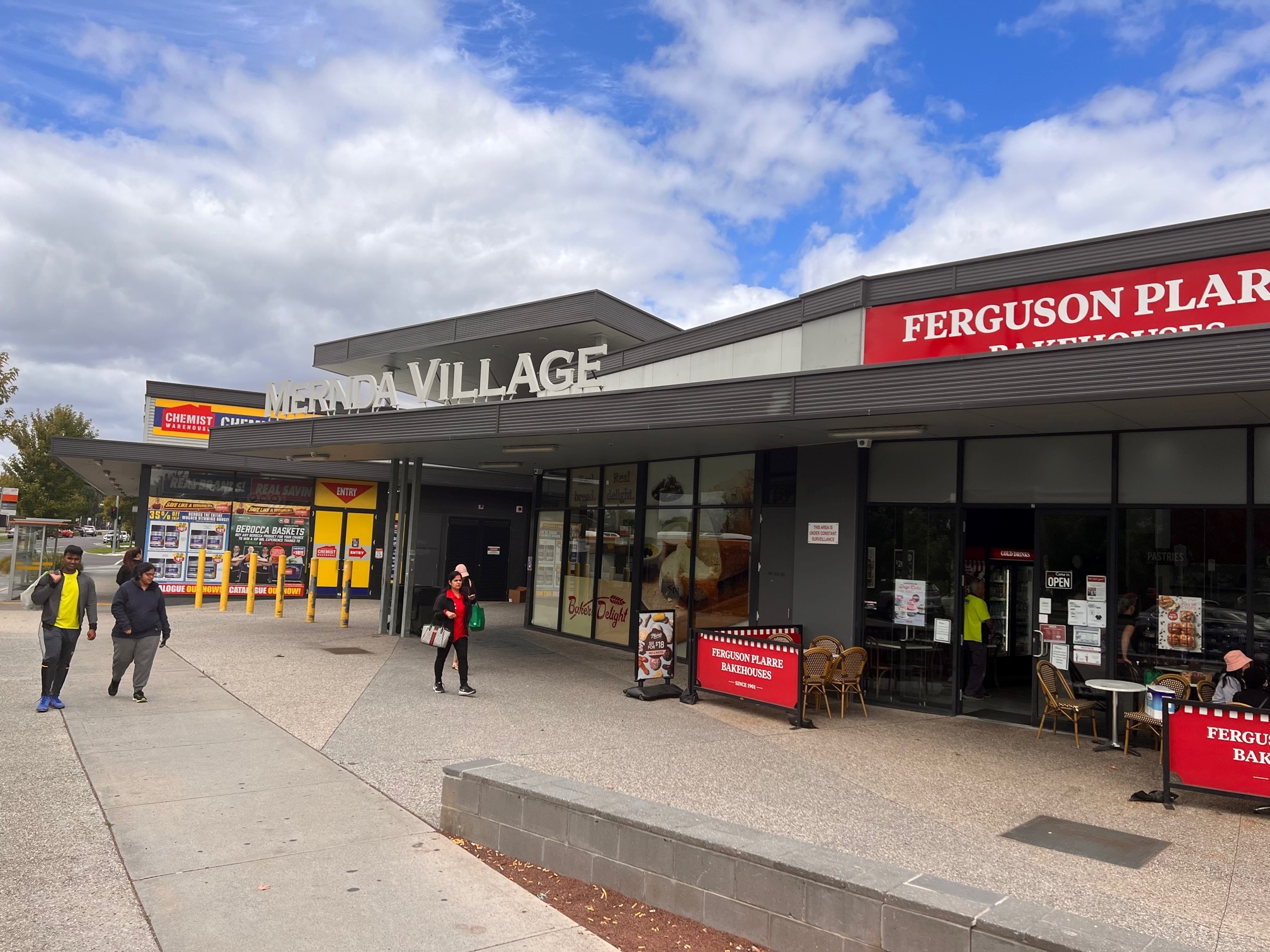Buying a home is a big step! There’s a lot to consider, from the merits of buying over renting, doing your research, inspecting a property, making an offer, contracts and settlement. We want to take the mystery out of the home buying experience, so this guide will cover everything you need to know from start to finish.
The Rata & Co Difference

388 offices across the Harcourts network, Australia wide

Over 100 staff members working within the Rata & Co Group

Rata & Co’s average days on market is 20.9

Rata & Co sold more than $500,000,000 worth of real estate last year

Our database and digital technology keeps us in contact with over 2,500,000 clients

We manage more than 4500 rental properties

Rata & Co staff can communicate in over 42 different languages.

Our global reach extends to the all four continents of the world.

We generate more than 2.1 million unique visits through digital tech
BUYING vs RENTING
When it comes to the decision of buying a property versus renting one, there are a few factors you need to consider.
On the one hand, buying a property certainly has significant immediate costs, but on the other, renting means you’re effectively paying off someone else’s mortgage.
So if you’re weighing up which option is right for you, consider both the short and long-term pros and cons of both.
BUYING
PROS
One day, you’ll own your home
The obvious pro of buying versus renting is that once your mortgage has been paid in full, you’ll have a home that you own. This means you won’t have to consider the cost of renting into your retirement plan. If you plan to sell your home after retirement, there’s the potential that the property has increased in value, and you’ll have more cash to put towards your nest egg.
You can change the home to suit your needs
Even before you pay off your mortgage, the house is still yours to change as you see fit. This means painting, fencing, landscaping and large-scale renovations are up to you. This gives you a certain
amount of flexibility too, if you buy a home in an area you love, but it’s too small, or in need of work, then you can always address these issues down the track.
Whereas when renting, if the home doesn’t fit your needs in the future, you’ll be looking to relocate to another rental property.
Security
There’s definitely a certain amount of security that comes from owning your home versus renting it. For instance, no one is going to tell you need to vacate because they’ve decided to sell the property or move back in themselves. There’s no risk a rental agreement won’t be renewed for any reason, or that certain conditions will change
that may impact your lifestyle.
This security can make it easier to plan for your future and consider things like pets and children without the risk that your living situation may dramatically change through no fault of your own.
CONS
Upfront costs
It depends on your location, but across the globe one thing about home ownership is generally the same, and that’s the requirement of a big lump sum up-front as a down payment or deposit. This means you’ll need a hefty amount of cash just to enter the property market.
There are other initial costs too depending on your country, like taxes, stamp duty, solicitor bills and title fees.
The cost of upkeep
Unlike renting, the costs associated with the upkeep of your home falls to you. Depending on the age and state of your home, location and whether or not you have a free-standing home or apartment/unit will all determine how much you may be spending in maintenance costs over the course of owning your home. It’s best to factor this into your budget before committing to a mortgage.
Your return on investment is not guaranteed
Of course it depends on your area and how this area fairs in the long run, which can be pretty hard to predict without a crystal ball, but the costs of owning your home versus how much of a return you’ll receive if you decide to one day sell might mean you could make a loss at the end of the day.
Other things to factor in here are how long you plan to be in the home, how much work is needed on the property (could you see yourself taking out additional loans to cover things like renovations?), has the area experienced recent growth? What other long-term factors could impact the neighbourhood positively or negatively?
RENTING
PROS
Cheaper in the short-term
In a lot of areas, the option of renting property is usually going to be cheaper, at least up-front if not week to week, than paying off a mortgage on the same property. Not to mention that in most
countries, the only up-front cost is usually a bond, a relatively small amount of funds kept in a trust in the event the home is damaged or unreasonably worn at the expiry of the lease.
This also means costs associated with owning a home, like land/property taxes, building insurance and maintenance are handled by the landlord.
Another plus is the ability to rent a home in a desirable suburb, close to transport, offices, entertainment and other lifestyle amenities as
a rented home in these areas is usually within most peoples’ budget versus the sale price of a home in the same area.
Flexibility
One of the obvious pros to renting is the flexibility. That’s the flexibility of not being locked into a long-term commitment, as you are with a home you buy. At the end of your lease, you’re free to move, or stay on if it suits. When it comes to selling a property you own, you’re faced with the prospect of selling the home for the price
you need, you’re up for the costs associated with this, and you’re at the mercy of current market conditions.
This kind of flexibility allows you to move jobs, travel or simply change your mind about an area with the opportunity to move relatively quickly.
In some areas, particularly popular ones, you may even be able to break your lease early if the property manager/landlord is able to find a replacement tenant easily, or for a pre-determined fee. In some cases, there are even rental clauses which stipulate acceptable reasons for breaking a lease, such as a job transfer.
Financial stability
When it comes to your monthly expenses as a renter, your budget can be more stable than that of a mortgage holder. Without fluctuating interest rates, taxes, and maintenance costs to worry about, and the cost of rents generally only changing upon renewal of some leases, you can potentially have more financial stability than a home owner.
CONS
The home will never be yours
It’s true that at the end of day, the home you’ve been paying to live in will never be yours, whereas the mortgage repayments of the home owner will mean the home will one day belong solely to them. Whilst renting gives you flexibility, it can also mean that at a time when you’re looking to settle down, you don’t have the stability of a home of your own.
You won’t be able to personalise your home
Things like renovations and home improvements usually can’t be done on your rental property unless negotiated with the homeowner and even then, you might find that some things will be at your expense or will mean that your rent could potentially increase.
It could also mean that things like pets aren’t permitted, and you’re restricted to looking for properties that will allow animals.
So the look and feel of the home will usually not be up to you, and if you’re looking for extras, like air-conditioning or ceiling fans, or features like security screens, your landlord may agree to put these in only if you agree to a higher weekly rent amount.
Renting long-term has its pitfalls
If you decide to rent until retirement, unlike a homeowner who very well may have paid off their mortgage and will now have no ongoing loan repayments to make, you will need to be able to afford rent even after you leave the workforce.
Depending on your other investments, and how well you’ve saved for retirement, it may be feasible to continue renting for life. But if you’re unable to continue renting in your area during your retirement years, you may only be left with the option of relocating to a less desirable area or a far more modest home.
IT’S YOUR CHOICE
At the end of the day, the decision to rent or buy is a very personal one, heavily dependent on both your short and long-term plans and goals. For most people, renting is the necessary option for at least a portion of their lives, with home ownership the long-term goal.
WE ARE INNOVATORS
WE ARE COLLABORATORS
WE ARE EXPLORERS
WE ARE CREATORS
WE ARE PIONEERS
WE ARE ACHIEVERS
WE ARE HARCOURTS
SORTING OUT YOUR FINANCES
How Much Deposit Will You Need to Buy Your New Home?
Most lenders will require you to have a 20% deposit for your home loan. For example, if you wish to purchase a home worth $400,000, you would require an $80,000 deposit. However, most lenders have loan products to borrow up to 90% of the property value.
If you don’t have a 20% deposit and need to borrow more than the 80% threshold you should speak to a mortgage adviser who can talk you through your options.
Budget
Create a budget to determine what you can realistically afford to spend on mortgage repayments. Your budget should include all
your regular outgoing expenses along with estimates for the cost of ownership of a home (insurance, rates, interest on your mortgage,
applicable body corporate charges and maintenance for your home).
These costs will vary depending on where you live and the type of home you wish to buy.
Mortgage Calculator
Once you’ve worked out your budget, you can use a home loan repayment calculator to get an idea of what your mortgage repayments would be. It’s probably a higher figure than you are used to paying in rent but the benefit is that instead of being an expense, your mortgage repayment is paying off a capital investment.
If you’re happy that you can afford to pay this amount each month, then you can start looking at financing.
Pre-approved Finance
Approach lenders to get finance pre-approval so that you know what price range you can look at for your new home. Given your income and financial commitments, banks will provide a pre-approved amount (to which terms apply) beyond which they would not lend.
This gives you a ceiling for the maximum you can spend on buying your first home.
Mortgage advisors
Mortgage advisors or brokers can help you find the best deal from lenders. Remember, mortgage advisors’ fees are paid for by the lender, not you.
A Mortgage Express mortgage advisor has the knowledge and expertise to find the best option to suit your individual needs. A home is one of the most significant investment decisions you will
make and we’re here to make sure that you know the different ways you can structure your loan and what the different lenders will offer you.
Financing your home
If you already own a property, depending on its value you may be able to use the equity in your current home to help secure financing for the purchase of your new property. Talk to your mortgage advisor about the options available to you.
DO YOUR RESEARCH
Once you have your finances in place, you’ve worked out your borrowing capacity, and perhaps sought
pre-approval on your home loan, it’s now time to get to know the market.
Start to look at neighbourhoods that would suit your needs and your budget. A great place to start is
online. There are lots of property comparison sites on the web which will give you an indication of the
average sale price of houses, land and units in an area.
Also take a look at how a neighbourhood has fared over the last five to 10 years. Have prices steadily
increased, stabilised or been in decline? These figures can help you to determine if the property will be a
good investment over the long-term.
Once you’ve found a location that fits your needs, and fits in with your average price range, start to look
at properties on the market. Compare features, price and land-size. You can engage your local Harcourts
sales specialist to help you find the perfect property for you. Our sales team know the areas they work in
very well, and can also give you advice on what the neighbourhood is like, if there are new infrastructure
projects planned, and how prices have changed over the last few years.

INSPECTING PROPERTIES
Take advantage of an open home and use the time to perform a thorough property inspection. Later on, you’ll want to engage the services of a professional to inspect the building’s structure and for pests, but it’s a good idea to use your initial tour of the home to perform your own inspection.
THE DWELLING’S STRUCTURE
When inspecting a property, chances are the current owners are going to present the interior of the property in the best possible light. They will have cleaned and tidied, perhaps added a new
coat of paint, or even had the home styled with beautiful furniture. Whilst these things will help you to appreciate what the home could look like for you, at this stage, it’s more important to focus on the dwelling’s structure.
Some things to look for include:
- Damage from pests. Recent termite damage in wooden structures is a huge red flag. Have a look for bores through wooden frames, or dirt tubes in the foundation or exterior walls that hint to termite infestation.
- Poor construction. Windows and doors that jar, or cracks in the walls around doors and windows are both signs of poor construction.
- Wet spots on walls or ceilings. Condensation within the home can lead to mould build-up, timber decay, leaks, corrosion and even loss of structural integrity.
- Cracks in the foundation. Some small cracks in a home’s foundation can be harmless, but large cracks either running down the foundation or across could mean a home is shifting, which can cause significant structural damage over time.
If you’re not entirely sure if what you’re seeing is cause for concern, and you are interested in the property, the best course of action is to enlist the services of a qualified building inspector.
THE NEIGHBOURS
If you’ve got to the stage where you’re inspecting the property, then you probably know a bit about the neighbourhood you’re looking in, but what about the neighbours? Take a look at the neighbours on each adjoining border of the property for any clues you might not be comfortable long term.
- Are the neighbours’ yards neat and tidy? It might not directly impact on the property you’re considering, but what about when it comes time to sell the property? Would untidy yards next to yours reflect poorly on the area?
- Do they have pets? It might not be an issue, particularly if you have pets of your own. But look for problem pets. Is a neighbour’s dog barking non-stop during the inspection? Are animals loose or roaming? Is there evidence of pet damage to shared fences or common areas?
- Do you have a comfortable level of privacy? Take a look at different angles around the home, particularly on smaller blocks or apartments. Are you too close to neighbours? Can you easily hear them through the walls? Are certain windows placed directly opposite a neighbour’s window? Is the property fenced off from neighbours?
About Mernda
THE LOCATION
Location means more than the general neighbourhood. You may be attracted to the area, but take a look at the property’s exact location for things that may bother you longterm, hurt re-sale value, or cause lifestyle issues.
Things to consider are:
- The property is on a busy main road: Houses on main roads can attract lower prices than those on quieter, private and less congested roads. You’ll also have to get used to the noise of heavy traffic.
- The property is next to a retail or commercial space. This can cause issues with local business traffic, and depending on the type of business, and business hours, there could be additional noise. Also be mindful of properties that are next to land that may be zoned as retail or commercial. Local real estate consultants should know this information.
- The property’s proximity to a train line. A home close to public transport is always convenient, but a home that shares a border with a train line, for example can cause a lot of excess noise, potentially hurt re-sale value, and cause safety issues for young family members depending on fencing around the property.
- Power lines over the land/property. Sometimes found on larger parcels of land, power lines have been known to drop property prices due to being unsightly, sometimes noisy, and due to claims that living close to them long-term can cause health issues.
- The property is on a flood plain. Depending on the city, the climate and the proximity to dams, lakes and watercourses, the potential of flooding on the property will be different. Be wary though, during major floods, houses within the same street, let alone the same neighbourhood, can be affected differently depending on their position, the house design, and hills and slopes.
These are just a few considerations to look into when going through an open home. After inspecting a property, continue to do your due diligence. Start to research any areas you’re still unsure of, and if you do decide the home is the one for you, enlist the help of independent property inspectors to cast a professional eye over the property.

MAKING AN OFFER
Once you’ve found the perfect property for you, it’s time to make an offer. Depending on the type of sale, and even the state or country you live in, the process of making an offer can vary.
How to make a formal offer
The best way to make a formal offer and avoid any confusion is to make the offer in writing. A sales specialist will provide you with a contract to start the process which will also highlight any conditions of sale. Our agent will then present this offer to the sellers.
Common conditions of sale are subject to:
- Finance
- A builder’s report
- Sale of another property
- Solicitor’s approval of the contract
- Specialist inspection or approval
The offer will be prepared on a standard approved contract and you will be asked to sign the required number of copies. Once this process has been completed the consultant will check whether any other interested parties are putting in an offer. This system ensures the situation remains fair to all parties in a multiple offer situation. The seller can accept your offer, reject it or counter sign it. Counter signing usually occurs when the seller is not satisfied with the price offered and/or conditions included and subsequently alters them.
The contract will be brought back to you for your consideration. If you accept, you initial the seller’s alteration and the property is under offer to you subject to any conditions that the contract may contain. Alternatively you also have the right to counter sign. The consultant will continue negotiations between you and the seller until you are both in agreement.
After your offer is accepted
If your offer is accepted, and all parties have signed the contract you will be asked to pay a deposit. This usually equates to 10% of the purchase price.
Once paid, this deposit is held in a trust ac count until the contract is confirmed, i.e. becomes unconditional in all respects. It is then paid to the seller. If the contract does not become unconditional the deposit will be repaid to you.
Selecting a solicitor/conveyancer
You will need to nominate a solicitor or conveyancer to act on your behalf once your offer has been accepted.
Click here to contact our preferred conveyancing business partner, Melbourne Real Estate Conveyancing, for your conveyancing needs, so you can at least take some of the stress out of this important process and rest assured that you are being looked after by a qualified professional.
Property Insurance
Once the contract becomes unconditional, you will need to take out insurance on the property.
Completing the purchase
Before settlement your solicitor or conveyancer will undertake the necessary searches with respect to the property and your financier will prepare the mortgage documentation. On settlement your solicitor or conveyancer will exchange with the seller’s solicitor:
- Monies
- Transfer documentation
- Keys to the property
Within a few days of settlement your solicitor, conveyancer or financier will register the necessary documentation and mortgage transfer with the Land Titles Registry.
Possession of the property usually takes place on the settlement day although the seller and buyer can agree for these dates to be different.
One of our team members will contact you to arrange a pre-settlement inspection. This is your opportunity to ensure all appliances at the property are in working order and that the property is as you recall from the time you signed the contract.
If issues arise at this inspection, you should immediately contact your solicitor or conveyancer to postpone settlement until your concerns are addressed.

Meet Our Sales Specialists

How we can help you?
Please select the option most appropriate to your needs:












